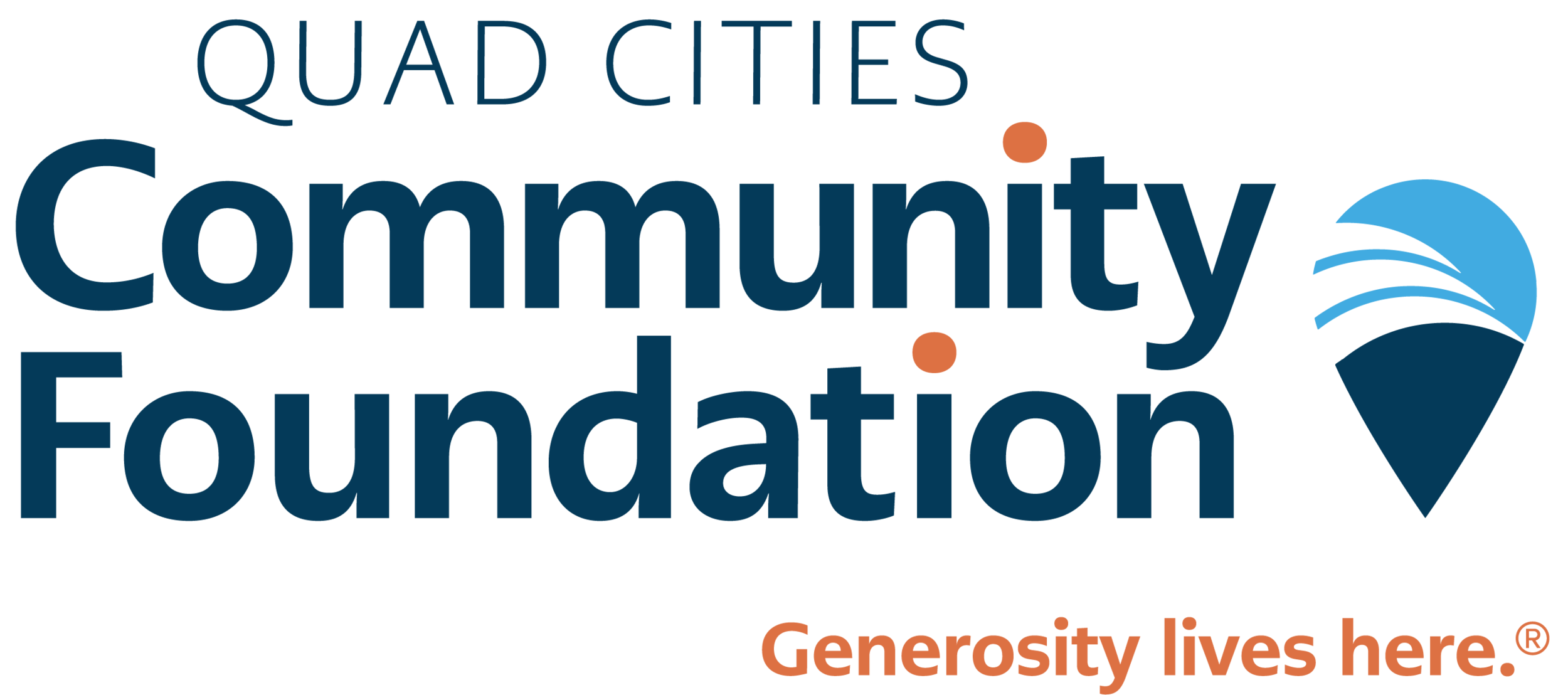Second round of COVID-19 recovery grants awarded to 21 organizations
Fund nears $1 million in donations and pledges, every dollar of which will support the community in the weeks and months ahead
A second round of grants have been awarded to Quad Cities-area nonprofits supporting the community’s response to the COVID-19 pandemic. Every single dollar granted has been made possible from donations to the Quad Cities Disaster Recovery Fund at the Quad Cities Community Foundation.
The fund—which is closing in on $1 million in donations and pledges from Quad Citizens, businesses, area funders, and donors from the “Unite Quad Cities” giving event—provides critical support for basic needs during the pandemic. Funding in this round has also been granted to support nonprofits providing their services more safely, such as taking additional precautions for services that must be in-person like care for people with disabilities, or shifting to remote delivery of mental health services, substance abuse services, legal services, and community support services.
You can give to the fund now by clicking here.
With this round, a total of $590,772 from the Disaster Recovery Fund has been granted swiftly back into the community. Grants are reviewed by a team from the Quad Cities Community Foundation, United Way of the Quad Cities, and the Regional Development Authority.
Nearly $3 million in grant support has been requested from area organizations. The requests continue to grow, and each one is reviewed—or re-reviewed—to identify the greatest needs and opportunities during the pandemic.
Kelly Thompson, vice president of grantmaking and community initiatives at the Community Foundation, said that the fund will continue to grant dollars out on a rolling basis. “Through the Recovery Committee of Disaster Ready Quad Cities and the Quad Cities COVID-19 Coalition, we continue to gain new knowledge of how this disaster is affecting the Quad Cities, and we are working together to provide the right support to our community at the right time.”
Sherry Ristau, president and CEO of the Community Foundation, emphasizes that additional contributions are needed. “It is worth a moment of pause to acknowledge the tremendous contributions people have made to the Quad Cities Disaster Recovery Fund. As of April 14, a total of 1,089 individuals or businesses have committed $995,284 to the fund, which includes more than $150,000 from the ‘Unite Quad Cities for COVID-19 Recovery’ giving event,” she said. “The need requested is three times the number that has been raised—and we are committed to putting every single dollar to good use.”
A total of $240,370 was granted this week to 21 organizations. The awards include additional grants to three organizations (noted with an asterisks) that received support in the first round so that they can continue their critical work:
The Arc of the Quad Cities Area, to continue critical services to people with disabilities—$11,300
Big Brothers Big Sisters of the Mississippi Valley, to continue support of children in need—$15,000
The Center, to expand food and basic needs services to people in need—$10,000
The Center for Youth and Family Solutions, for technology to continue remote critical safety services for children and families—$4,600
Child Abuse Council, to continue and expand critical services to children experiencing trauma —$8,000
Family Resources, Inc., to continue critical services to children and families—$20,000*
Gilda’s Club Quad Cities, for technology to expand remote support groups and TeleMental Health services—$8,000
Goodwill of the Heartland, to continue critical employment support services—$20,000
Hope at the BRICK House, Inc., to expand meals and support to families in need—$1,500
Humility Homes & Services, Inc., to continue housing homeless individuals and families—$20,000*
Iowa Legal Aid, to expand legal services to low-income Scott County residents—$20,000
King’s Harvest, to expand food provision for people in need—$5,000
Milestones Area Agency on Aging, to expand meal provision for isolated, home-bound seniors—$12,270
Moline Community Development Corp., to continue critical services to low-income neighborhoods—$4,500
Quad Cities Chamber of Commerce, to expand provision of COVID-19 business resources—$25,000
Rock Island County Council on Addiction, for technology to expand remote support groups and treatment—$5,000
Tapestry Farms, to expand provision of basic needs for vulnerable refugee families—$2,700
The Salvation Army—Quad Cities, to expand homelessness prevention and emergency sheltering options for homeless individuals and families—$15,000*
Trinity Health Foundation, to support Trinity Health Care workers on the frontlines for COVID-19—$7,500
YouthHope, to expand provision of food and support to families in need—$10,000
YWCA of the Quad Cities, to continue critical services to children and families—$15,000
“Reviewing applications from so many agencies in crisis is difficult, but also inspiring,” said Matt Mendenhall, president and CEO of the Regional Development Authority. We see that many nonprofit leaders are adapting to meet a whole new set of challenges. And, we can also start to see how the critical needs line up—from shoring up our health systems to providing food and shelter for people in crisis to keeping families afloat to prevent more crisis situations. At the same time, we look closely at what can be done to protect nonprofit infrastructure.”
Karrie Abbott, chief operating officer at the United Way of the Quad Cities, added that this moment is one unlike the region has ever seen. “At United Way, we’ve seen our community face many challenges—from economic recessions to natural and man-made disasters. However, nothing can compare to what we’re facing with the COVID-19 crisis,” Abbott said. “As the need has grown, the generosity is growing exponentially. As we navigate our way through this trying time, nonprofits, businesses, government and individuals must continue to come together in any way we can to support organizations providing services on the front line to those impacted.”
